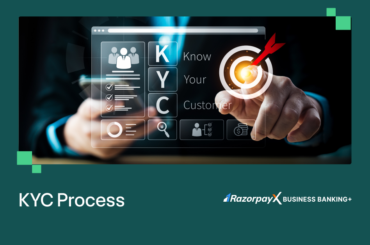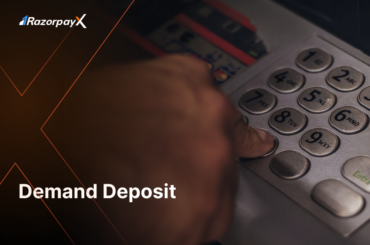The startup ecosystem is flourishing in India, with the country now becoming the third-largest ecosystem in the competitive market. Therefore, emerging enterprises, SMEs and MSMEs are looking for different funding options to secure the scope of their sustainable developments. Interestingly, short-term loans can come in handy for all such businesses in this regard.
Understanding Short-term Loans
When businesses avail this type of term loan for business, the repayment tenure is notably brief as the funding mechanism is designed to be a temporary solution to meet working capital deficits. Businesses can enjoy an unrestrained cash flow without going through a prolonged waiting and sanctioning procedure. However, the business remains responsible to repay the borrowed amount along with interest within the pre-decided tenure.
A startup may find itself in need of an immediate liquidity boost to cater to certain specific needs such as paying employees’ salaries, raw material purchases, funding expansionary steps, or buying equipment, among others. However, a startup may not have the necessary assets or collateral to deem them low-risk borrowers by financial lenders. Therefore, a newly-found business may struggle to access formal credit via traditional means. In such scenarios, a short-term loan can be a highly effective solution.
This type of credit funding is provided without any collateral, so startups can sign up for it without any additional stress. They receive the needed outlay via an end-to-end digitised procedure and pay it off comfortably at an affordable interest rate.
Which Businesses Are Eligible for a Short-term Loan?
The eligibility criteria to avail short-term loans may vary significantly from one lender to another. However, there are some basic parameters in place that these institutions abide by.
For instance, Razorpay, the sole converged payment solution platform in this country, offers a line of credit to businesses under the following circumstances:
- Businesses must have an annual turnover of INR 20L or above
- Business vintage has to be of minimum one year
What Are the Features of a Short-term Loan?
Some of the quintessential aspects of a short-term loans in India include the following:
- In general, the disbursal period for this type of loan is exponentially shorter
- The lending terms of short-term loans are often flexible and open for negotiation
- Based on the policies of a lender, both self-employed and salaried individuals can avail of this loan.
- EMIs payable can be customised as per the repayment capacity of a borrowing business entity
- For most lenders, short-term loan application and sanctioning procedure is thoroughly paperless
- Usually, there are no end-use restrictions on the received credit amount
What Are the Different Types of Short-term Loans?
There are several types of short-term loans in India. Some of these include:
- Demand Loans: Demand loans, also called working capital loans, are a type of secured credit that can be used to quickly obtain funds for short-term business needs, such as buying materials, paying employees, or covering rent. These loans are pre-approved and can be accessed as needed. They are particularly well-suited for startups.
- Bank Overdraft: A bank overdraft is a type of credit that allows customers to spend more money than they have in their account by extending a credit line. When a customer’s account balance reaches zero, the overdraft kicks in and they can continue to make purchases or withdraw money. This unsecured credit is intended to meet short-term cash needs. Interest and fees may be charged for not maintaining the account, and interest rates for overdrafts can vary among different lenders.
- Trade Credit: Trade credit is a type of agreement between businesses in which a customer is able to buy goods or services without paying for them immediately, and instead paying the supplier at a later date. This type of credit is usually given for 30, 60, or 90 days, and the transaction is recorded through invoices. It allows businesses to purchase items they need without having to pay cash upfront.
- Merchant Cash Advances: A merchant cash advance (MCA) is a type of financing option for small businesses that used to be structured as a one-time payment in exchange for a percentage of future credit or debit card sales. However, the term is now often used to refer to a wide range of financing options that have short payment terms (usually under 2 years) and smaller, more frequent payments (often paid daily) compared to traditional bank loans, which usually have larger monthly payments and longer terms. This type of funding can come from purchasing future credit card sales or from short-term business loans.
- Line of Credit: A line of credit (LOC) is a prearranged amount of money that a borrower can access as needed, up to a certain limit. The borrower can withdraw funds as required until the limit is reached, and as the money is paid back, it becomes available again for borrowing in case of an open line of credit. It is a flexible and convenient way of obtaining funds when needed.
- Invoice Factoring: Invoice factoring is a form of invoice financing where a company sells some or all of its unpaid invoices to a third party in order to improve its cash flow and financial stability. The factoring company pays a majority of the invoice amount upfront and then collects payment directly from the company’s customers. This allows the company to receive payment for its invoices more quickly, rather than waiting for customers to pay on their own schedule.
What Are the Benefits of Line of Credit as a Short-term Loan?
A line of credit is a specific type of short-term loan where a financial institution allows a borrower to withdraw a specific amount as per the requirement from its total credit limit sanctioned. Some of the crucial advantages of this type of funding include the following:
- A business can get a working capital boost without the need for collateral
- The borrower may choose to repay before the scheduled time to enjoy the benefits of a reduced interest charge
- Interest will only be charged on the amount used by the business and not on the total sanctioned credit
- Most lenders make sure a borrower can withdraw the necessary amount via a single click
- The Annual Percentage Rate (APR) for a short-term business loan like a line of credit tends to be low
- The borrowing limit for a line of credit is usually high
How Razorpay Ensures Startups Receive Hassle-free Short-term Loans!
With its Line of Credit facility, Razorpay has made it easier for businesses to access a credit limit of up to INR 25L. It provides the short-term loan at a minimal interest rate starting from 1.5% per month and does not charge any amount for pre-closure.
Additionally, the platform provides an online EMI calculator which you can use to adjust the required loan amount and repayment period to get a precise estimate of the amount payable every month against a particular interest rate. The calculator also displays the interest payable. This way, you can do adequate financial planning before applying for a new line of credit.
How to Apply for Razorpay Line of Credit?
Apply for Razorpay Line of Credit by following a few simple steps mentioned below:
STEP 1: Head to the ‘Line of Credit’ page on Razorpay
STEP 2: Click on ‘Get a Line Now’
STEP 3: Select ‘I’m new to Razorpay’ or ‘I am already a Razorpay customer’
STEP 4: Provide your personal details
STEP 5: Choose the annual turnover or revenue amount of your business from the displayed drop-down menu
STEP 6: Provide some crucial data about your business
STEP 7: Attach the credit report of your company
STEP 8: Provide the primary bank accounts statements of your company
STEP 9: After application acceptance, submit your company’s KYC documents via email
STEP10: Once the account has been activated, you are allowed to withdraw, repay, and reuse as per the terms and conditions of the platform
Related Read: What is an MSME Certificate & How can you download an MSME or Udyam Certificate Online?
Frequently Asked Questions
Q1. What kind of short-term business loan is a line of credit?
Ans. A line of credit is an unsecured short-term loan.
Q2. Is your private data secure with the Razorpay Line of Credit?
Ans. Razorpay follows industry-best practices and ensures that none of your sensitive data is stored.
Q3. Can a short-term loan like a line of credit help your business CIBIL score improve?
Ans. If you are able to meet your repayment deadlines or pay back the lender in time, it can positively affect your CIBIL score.





